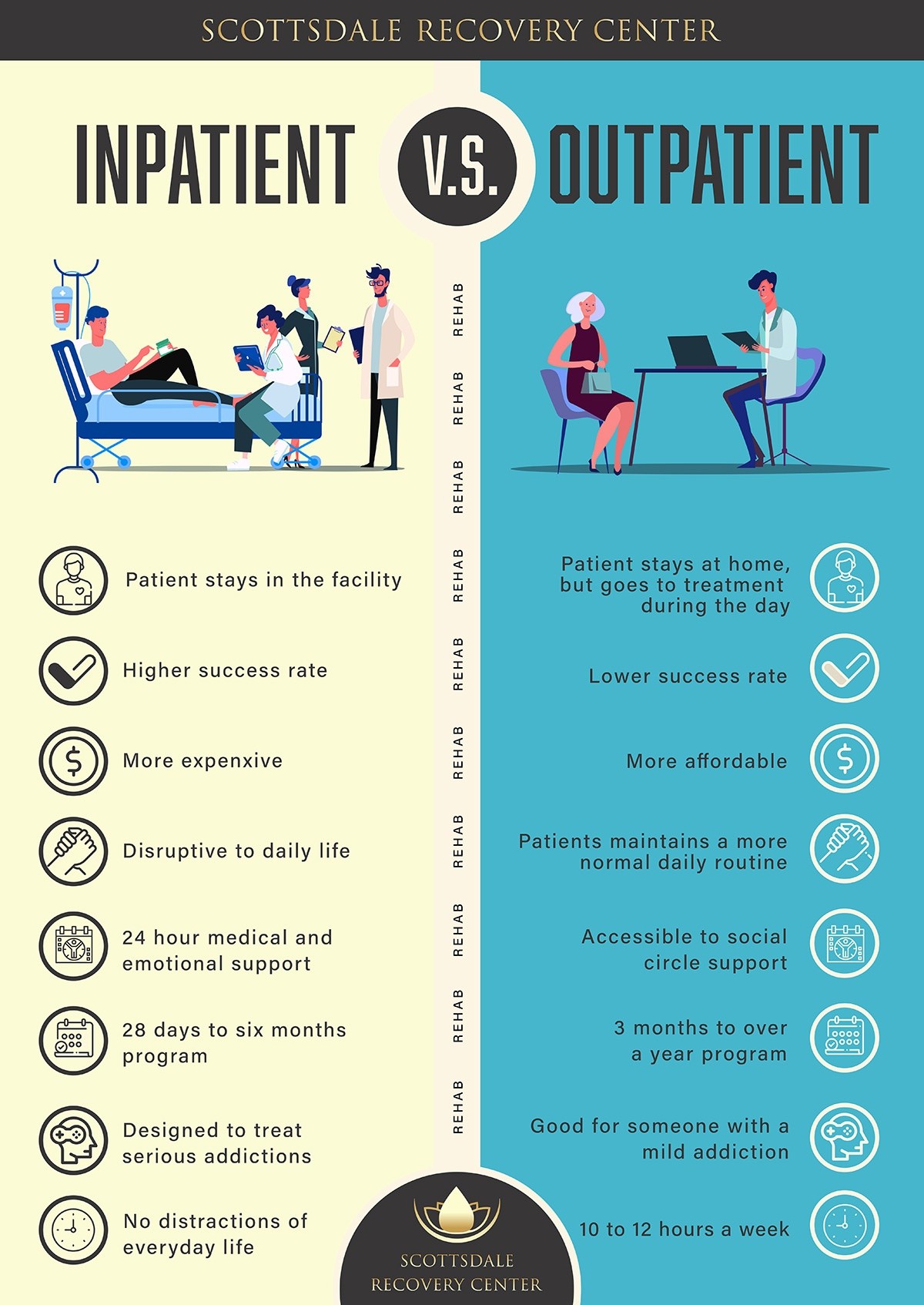So, what is drug rehabilitation? Drug addiction rehab or treatment is the procedure where people with addictions: Eliminate their body from the substance and eliminate the body's need for the drugRinse the drugs and their harmful metabolites from their bodyRecover from the physical devastation of addictionMove from the extreme negative psychology of active dependency to the favorable psychology of recoveryRecover regular, healthy social practicesLearn to handle life and its stressors without utilizing compounds or behaviors to copeCome to comprehend that recovery is a lifelong commitment to abstinenceBecome ready to handle the recovery activities that are required to maintain long-lasting recoveryThe drug rehab process takes place in a couple of phases.
It is essential that the steps to drug rehab be appropriately dealt with during the drug rehabilitation process. There are 4 phases of dependency recovery: Dependency assessment is a specifically critical part of the rehabilitation process. Individuals with compound dependencies are extremely deceptive. This belongs to the underlying psychology of dependency, and it enhanced by worries of arrest for ownership and judgment from friends and family.
The specific needs to determine which substances were used and the extent of their substance usage. Healthcare assessments at The Recovery Village are carried out over the phone by an assigned intake organizer and should just take about 15-30 minutes, depending on current compound use and case history. Over half of people with compound addictions have an underlying psychological health condition.
As such, it is essential to identify any co-occurring psychological health conditions and treat these at the very same time as the dependency. Otherwise, the possibilities of success in recovery are significantly decreased. To recuperate from substance use, people need to initially go through the process of ridding the body of the compounds and their hazardous metabolites.
8 Simple Techniques For What Is It Called When Someone Lives At A Drug Rehab
As the body clears the substances, the unpleasant experience of withdrawal takes place. The detox from alcohol use can be unsafe, even life-threatening. People who routinely utilize alcohol should seek advice from a doctor or take part in a medically monitored detox program before stopping. For many individuals with dependencies, worry of withdrawal is a major barrier to leaving their addiction, which fear keeps them from even attempting.

By taking part in a medical detox program, people can get through the experience safely and comfortably. The rehab process is the biggest part of an dependency treatment program. This is where the underlying reasons for addiction are resolved. For the majority of people with substance addiction, their substance use is no longer about getting high.
Drug rehabilitation is the procedure where the deep issues around the addiction are determined and addressed. This is achieved in a variety of ways: Regardless of the length or intensity of the rehab program, no one strolls out of rehab "treated" of dependency. Rather, it can be said that rehab is the process of discovery, while what happens afterward is recovery.
Nevertheless, this hardly ever works, and the large majority of people who try drinking or using drugs once again will quickly end up where they were before. Research study information confirms this, along with the reality that people are at a specifically high risk of overdose throughout a regression. A common problem among rehab programs is that there is no sustainable plan for ongoing healing assistance after discharge.
How How To Start A Drug Rehab Center In Ga can Save You Time, Stress, and Money.
Ongoing participation in a recovery program, such as a $112-step program or SMART Recovery, is essential for continuous recovery. Rehab programs that introduce individuals to these aftercare programs are more effective at guaranteeing involvement in continuous healing activities after discharge.Sober living homes are an especially efficient method to aftercare when a person is released from rehabilitation. If you want to help a buddy or household member, find out more about how to direct your enjoyed one towards treatment. If you're prepared to take the very first action towards recovery for yourself, call The Recovery Town today. There are different types of treatment for addiction, based on the level of care supplied. Addiction is characterized by a pathological need for control, a propensity to justify bad decisions and a lack of insight. This is a bad combination, as it propels many individuals to believe that they can stop utilizing drugs or drinking on their own. As such, they might be unwilling to see and confess that they need a higher level of care, such as inpatient rehabilitation. It is merely a procedure that helps individuals through withdrawal signs while their body purges itself of harmful substances and gets used to their lack. During the procedure of drug detox, people's minds are muddled and they feel physically and mentally ill. They are not responsive to any kind of counseling or treatment until their minds clear and they are feeling better. The therapy is more extreme than property rehabilitation and might be uncontrolled or on an emergency situation basis.

Inpatient treatment has advantages that enhance the transformative effect needed for healing by: Preventing triggers and getting rid of the person from individuals, places and things that were related to the compound useRemoving the person from any poisonous relationships or environmentsAllowing for a more extensive, dedicated treatment regimenProviding a social environment, or a" culture of healing" Guaranteeing that the person has some solid recovery time before they are dischargedInpatient rehab likewise permits people to access drug http://jaidenfqho844.almoheet-travel.com/more-about-where-is-rsat-drug-rehab-located rehabilitation services, including leisure therapy and recovery-focused social activities.Residential addiction treatment is the pillar of treatment for many individuals. This enables them to reorient their lives and believed processes while concentrating on distraction-free recovery. Residential rehabilitation varies from inpatient rehab in that it is carried out in a facility beyond the hospital system and generally involves a longer stay. The program is usually less extreme than an inpatient program and provides participants a little more self-reliance. People get healing services on-site throughout the day, however go home or to a sober living facility at night. This program is suitable for individuals who have a high Alcohol Rehab Center expectation of success along with the ability and insight to be more self-directed in their regimen. The presence of a strong support group is likewise a requirement. This permits people to transition from an inpatient stay to community living while preserving directed treatment, such as group or specific counseling and treatment for co-occurring psychological health conditions. Individuals in IOP live in an independent encouraging environment in the house or at a sober living home and attend daily treatment sessions.Outpatient treatment involves living at home and participating in treatment activities at an outpatient rehab center throughout the day. Many people with major dependency will likely have better outcomes in inpatient treatment and rehabilitation. However, outpatient drug rehabilitation might be suitable if: The person's physician Addiction Treatment knows the drug use and concurs with the outpatient treatmentThe person is currently.
detoxed from the drug and is devoid of withdrawal effectsThe substance abuse was mild or of short durationThe person has a safe, drug-free place to remain away from dealers and others who use substancesThe individual is highly inspired to stop usingThere is no co-occurring compound use or mental health disorderThere is a good support system in location, including people who know to see for harmful withdrawal symptomsThe individual does not live aloneLong-term drug rehabilitation is an inpatient treatment program normally lasting 3 to 12 months. how to stop drug addiction without rehab.